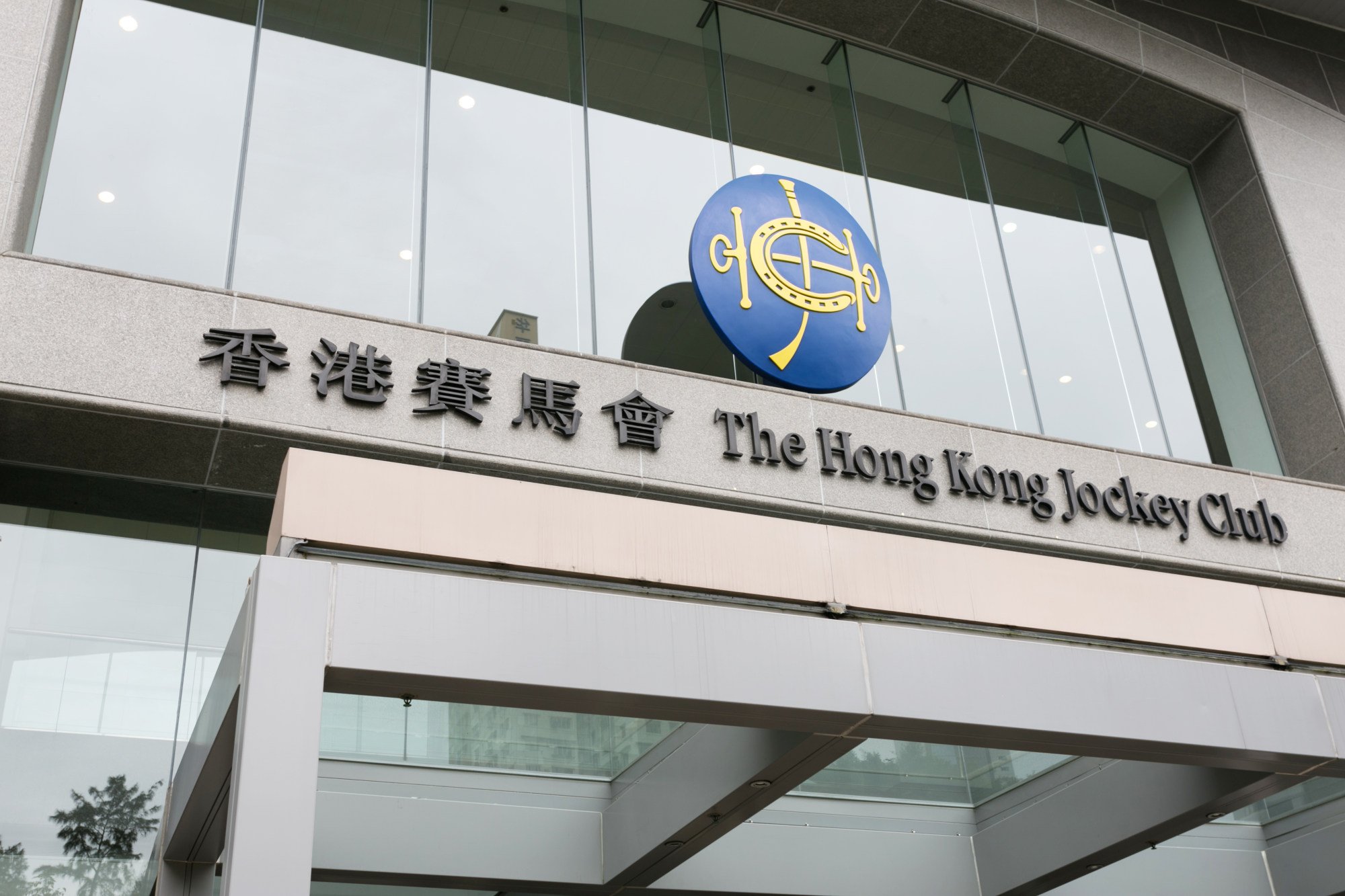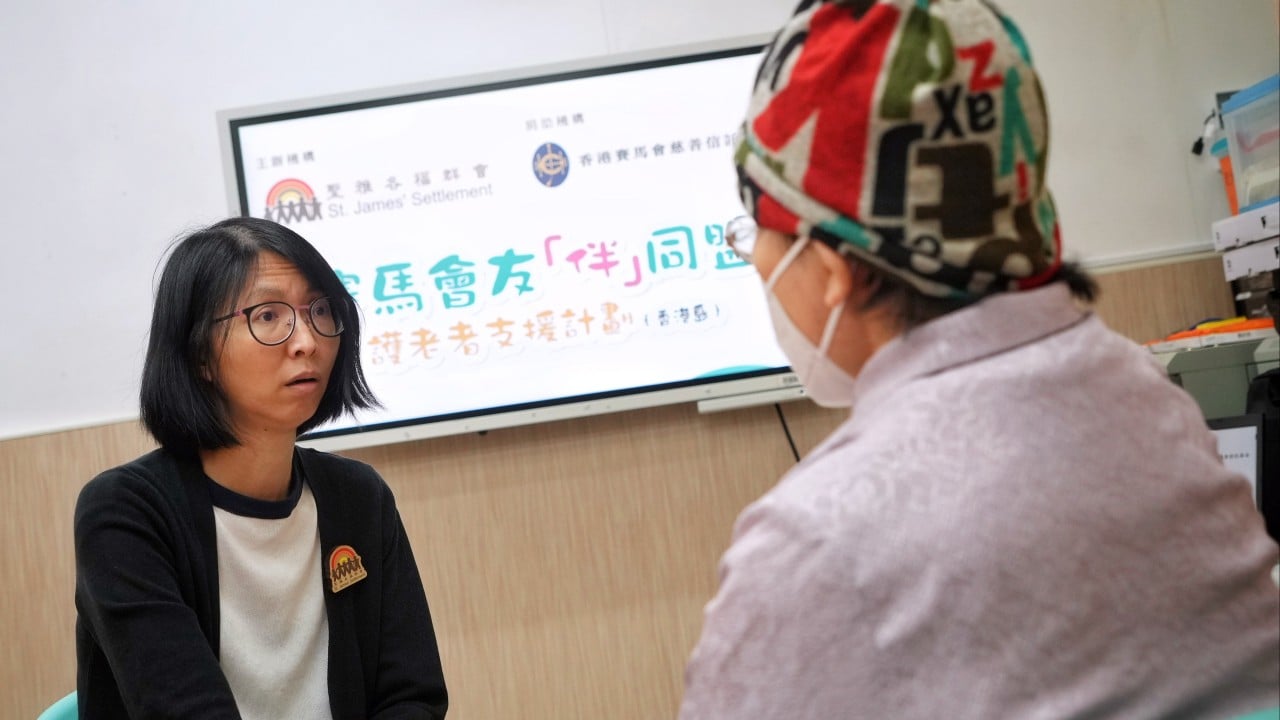Cancer-stricken daughter, 59, struggled to care for ailing mum, but a Hong Kong Jockey Club effort has eased her plight
When Hongkonger Chow was diagnosed with stage four breast cancer two years ago, her distress was made worse because she also had to worry about her elderly mother as her sole carer.
Chow, 59, quit her job as an accountant 10 years ago to take care of her frail mother, who uses a wheelchair and has dementia, high blood pressure, and heart and mobility problems.
She thought of hiring a domestic helper or placing her mother in a residential care home. But her mother did not like the idea.
“I needed someone to feed and look after my mother when I was away getting check-ups and cancer therapies [two to three times a week],” she said.
“I couldn’t send her to a day-care centre every time because of her lack of mobility, and she gets distressed easily in unfamiliar surroundings.”
Hong Kong has more than 1 million carers but support for them has been insufficient.
A Hong Kong Jockey Club funded initiative launched in 2021 sought to plug the service gap of in-home respite care and enhance support for carers, benefiting almost 2,000 of them.
Operated by five NGOs, the HK$17 million (US$2.18 million) project offers in-home respite services, emotional support and skills training to carers free of charge.
It has recruited more than 400 volunteers who were previously carers, some of whom were given a further 40 hours of training to provide in-home respite care.
Chow was a beneficiary. All she needed to do was make an appointment two weeks in advance through the NGO St James’ Settlement, which would send a trained volunteer to take over the caregiving duty before Chow returned home.
The volunteer also escorted Chow and her mother to hospital consultations when Chow was too weak to push the wheelchair.
“The service was a great help to my family,” she said.
“I used to be very reluctant to trouble others and wanted to take care of everything on my own, but we have to acknowledge that the task could become challenging when we get old, and we should seek help when necessary.”

Chow’s condition has largely stabilised although the cancer has spread to her heart and bones, and is incurable.
She has made all the preparations in case of a mishap, but remains committed to caring for her mother, describing it as “her purpose for coming into the world”.
St James’ Settlement project manager Vanessa Cheung Lai-chun said there were hidden cases who were in need but were reluctant to seek help or simply did not know how to, despite active promotion by the team.
Cheung stressed that all volunteers had to go through interviews and 40 hours of training provided by the Hong Kong Association of Gerontology.
She said interviews and home visits were also required for service applicants to better gauge their needs, but those requiring intensive care, for example, bed-bound people, were deemed unsuitable for the project, and would be referred to other services.
The second phase of the project, set to be launched in June, will feature needs assessment tools and an online system for case management, service matching and impact measurement.
It is expected to benefit more than 5,000 carers and train more than 1,000 volunteers.
Separately, efforts are also under way to close the gap between service providers and carers in need, including an online information gateway launched last November with HK$13 million in funding from the Jockey Club.
Developed and operated by the social work department of Shue Yan University, the platform features a social service search engine that allows carers to find support based on their needs and location, ranging from counselling service to respite care.
The website also featured a calendar for support activities and many articles and videos on caring techniques.
Department head Dr Steve Fong Fu-fai, principal investigator of the gateway, said more than 500 service providers had become members and listed over 4,000 entries on the search engine.
Within six months, the click rate of the website has reached more than 450,000, much more than the initial annual target of 90,000.
But Fong said they would continue to engage the more than 2,000 service units in the city and expand the content to cater to people of different needs, hoping to further boost usage.
Service providers, including private practitioners and district councillors, could also apply to list their services and contact information on the platform, but pure advertisements would be turned down.
He said that by the end of the year, the platform would feature an assessment tool to help carers identify their needs, and help frontline workers prioritise their services.
In the first quarter next year, an artificial intelligence chatbot will be introduced to the platform, with the aim of enabling individuals with limited digital literacy to search for services simply by voice input.
To ensure accuracy, the output of the chatbot will be based on the website’s verified content.


